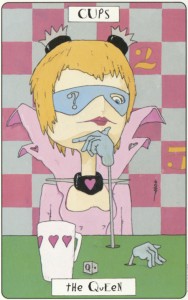Think About It
Continuing from Friday’s post on Training in Compassion by poet and Zen priest Norman Fischer:
 Another way to Train in the Preliminaries is to deeply and systematically contemplate a set of four traditional reflections. Fischer writes, “If you really take these seriously, if you really think about them long enough and hard enough to see how true they really are, it will change your outlook on life, and you will have found the motivation to begin again.” The reflections are:
Another way to Train in the Preliminaries is to deeply and systematically contemplate a set of four traditional reflections. Fischer writes, “If you really take these seriously, if you really think about them long enough and hard enough to see how true they really are, it will change your outlook on life, and you will have found the motivation to begin again.” The reflections are:
The rarity and preciousness of human life.
“Your living body is a fortunate, rare, and precious gift, and your human mind–consciousness risen to the point where there can be identity and value and thought and beauty and autonomous choice–is dear beyond compare.”
The inevitability of death.
“Most of us believe we don’t have to worry about this…because death comes in old ago, and since we are not now so old, it’s not a problem for us. But death doesn’t come only in old age, it comes at any age, and nobody knows when. And even if it were to come in old age, old age comes much more quickly than you thought it would: you were young, you blinked your eyes, thirty or forty years flew by, and now you are no longer young….This is a serious problem, and it’s a problem now, not later.”
The awesome and indelible power of our actions.
“In Buddhism this is called karma, which is not mystical or fatalistic. Karma simply means that each of our actions produces a result. And this means every action, both large and small. All of our thoughts, words, and deeds have consequences, and we may never know the measure of these consequences though they are extensive and powerful. In other words, every moment of our lives…..we have been affecting the world in some subtle yet real way; every moment, we have been participating in creating the world that now exists for ourselves and others.”
The inescapability of suffering.
“Although we don’t like to think about ti, it seems that sorrow and suffering are inevitable in any human life, even a happy one. There’s the suffering of loss, of disappointment, of disrespect; the suffering of physical pain, illness, old age; the suffering of broken relationships, of wanting something badly and not being able to have it, or not wanting something and being stuck with it….These things are part of life. No one can avoid suffering.”
The point of contemplating these four reflections is that they will cause us to “appreciate the seriousness of our human condition and to recognize that we have to live as seriously as we possibly can in response to the gift and the problem that is our life.”
(image from: Phantasmagoric Theater Tarot)
